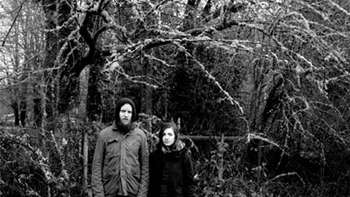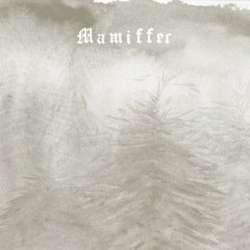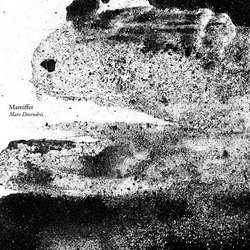Mamiffer was born in a field of darkness, a trajectory between the areas of dark ambient, downtempo and minimal music. The first days of Faith Coloccia and Aaron Turner reveled in a drone aesthetic, vividly apparent in their self-titled debut and Mare Decendrii. But then something changed for Mamiffer. Following a series of fantastic collaborations with the likes of Circle, Locrian and Pyramids, the duo returned with Statu Nascendi, a work that embraced a lighter post-rock quality while also holding onto heavy experimental motifs and drone atmospherics. It was a pivotal moment in the history of the band and a record signalling change.
That change was further illustrated with The World Unseen. In their 2016 album Mamiffer walked away from the darkness of their early works and embraced the light. While retaining their minimalistic tendencies, the duo stripped down much of the heavier instrumentation, instead relying on Coloccia’s vocal delivery and the piano/organ arrangements. It was a significant departure for Mamiffer, as the heavy drones, extravagant effects and ample feedback were set aside in favour of an atmospheric, minimal setting.
The Brilliant Tabernacle continues in the same direction for Mamiffer, again seeing Coloccia’s piano and vocal being at the center of it all. The introduction of “All That Is Beautiful” suggests as much with its delicate piano lines arriving in subtle waves while the ethereal vocal delivery creates an otherworldly sense. Similar is the case with “Two Hands Together,” which further touches upon the bright and gratifying energy that Mamiffer has uncovered, with the stoically inspired verse “I heard the voice of God in a baby’s cry” cutting through brilliantly. It is in these moments that Mamiffer are able to create an interesting amalgamation, bouncing between neo-classical and folk concepts. Instances like “So That the Heart May Be Known” play with this dichotomy to create their own brew of emotive music, with Eyvind Kang’s moving string arrangements playing a big part in exposing this core aesthetic, providing the final touches to an absolutely uplifting rendition.
While the duo still returns to the origin of their music with the minimal drones of “River of Light,” their energy has been transformed by this immensely positive perspective. In this collage of drones, organ motifs and effects, featuring the great Monika Khot of Nordra, Mamiffer instead of calling upon their past overwhelming essence of, instead craft a psychedelic vortex of positivity transpiring a transcendental moment. The case is similar with the epic “Hymn To Eros,” although this time around Coloccia and Turner, accompanied by Brian Cook (Sumac, Russian Circles), do divulge in the off-kilter quality of their early days. The eccentric percussion and the ferocious effects meet with a heavy bass line to create a moment of immense energy that dies out in a final drone spasm before the folky inclination finishes off The Brilliant Tabernacle in pure dreamy fashion.
It is the funnelling of this original energy to create something new, to open novel pathways for Mamiffer that makes The Brilliant Tabernacle such an enticing ride. It is almost magical to see how this duo has tamed the fury of their early days to give birth to this glorious sense of emotional positivity.









